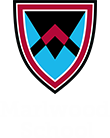IT and Computing
Vision
To equip all students with the fundamental skills in order to access the broader curriculum and successfully navigate the digital world;
To ensure any student wishing to access Computer Science at Key Stage 4 is phase ready
The increasing use of technology in all aspects of society makes confident, creative and productive use of ICT & Computer Skills essential skills for life.
The Intent of the Computing Curriculum at Marlwood School is to develop learners who:
- Demonstrate not only mastery of technical skills and techniques, but also the understanding to apply these skills purposefully, safely and responsibly in learning, everyday life and eventually employment.
- Can use ICT to find, develop, analyse and present information, as well as to model situations and solve problems.
- Are empowered to use ICT to rapidly access ideas and experiences from a wide range of people, communities and cultures,
- Are skilful in using ICT to collaborate and exchange information on a wide scale.
- Recognise ICT and social media’s potential as a powerful force for change in society and have an understanding of the social, ethical, legal and economic implications of its use, including how to use ICT and social media safely and responsibly.
- Demonstrate increasing levels of initiative and independent learning, as they are able to make informed judgements about when and where to use ICT and social media to enhance their learning and the quality of their work.
KS3 Curriculum Overview / map
KS3 Computing Curriculum Overview 2022
KS3 Year 7-9
Our KS3 studies in Computing aim to:
- Develop and master a wide range of ICT and Computing Skills
- Make students aware of their rights, responsibilities and legal obligations when using technology and online platforms.
- Give students opportunities to apply their knowledge and skills to real world situations and help them become critical thinkers.
Knowledge organisers / vocabulary list
These will be available on Google Classrooms.
Useful Weblinks/additional reading
How to support your child
Ask them what they are learning about in Computing
Help/encourage them to prepare for the end of unit tests.
The Computing Curriculum @ Marlwood
Curriculum Overview / map
KS4 Computing Curriculum Map_Overview 2022.pdf
KS4 Curriculum Year 10-11
Exam Board: AQA
Exam weighting: 100% examination
Assessment:
Students will sit two exam papers at the end of Year 11.
Paper 1: Computational thinking and programming skills
Computational thinking, code tracing, problem-solving, programming concepts including the design of effective algorithms and the designing, writing, testing and refining of code.
Will consist of a mix of multiple choice, short answer and longer answer questions assessing programming, practical problem-solving and computational thinking skills
- Written exam: 2 hours
- 90 marks
- 50% of GCSE
Paper 2: Computing concepts
Will consist of a mix of multiple choice, short answer and extended response questions assessing SQL programming and theoretical knowledge.
- Written exam: 1 hour 45 mins
- 90 marks
- 50% of GCSE
Content:
Paper 1
- Fundamentals of algorithms
- Programming
Paper 2
- Fundamentals of data representation
- Computer systems
- Fundamentals of computer networks
- Cyber security
- Relational databases and structured query language (SQL)
- Ethical, legal and environmental impacts of digital technology on wider society, including issues of privacy.
Skills:
A key part of this course is developing programming skills. The main focus will be problem-solving techniques and learning the Python programming language. You will be expected to design, write, test and refine a program to a set task / brief.
You will complete a range of tasks to consolidate knowledge. Lessons will be a mix of practical (programming) and theory lessons.
Please note that there is a considerable amount of mathematical and logical understanding that needs to be applied throughout; therefore we recommend that you are on track to gain at least a grade 4 in Maths to take this qualification.
What are the benefits of studying this course now and for the future?
This course is an excellent stepping stone to access further areas of study in Computer Science. Success in this course can open doors to studying A Level Computer Science and a huge number of degrees and apprenticeship opportunities. Examples of these are cyber security and big data analytics which are massive areas of growth.
Possible Careers:
Web Designer/Developer, Game Designer/Developer, Digital Marketing, Programmer, Software Engineer, Cyber Security
Knowledge organisers / vocabulary list
These will be available on Google Classroom.
Useful Links and resourcing

